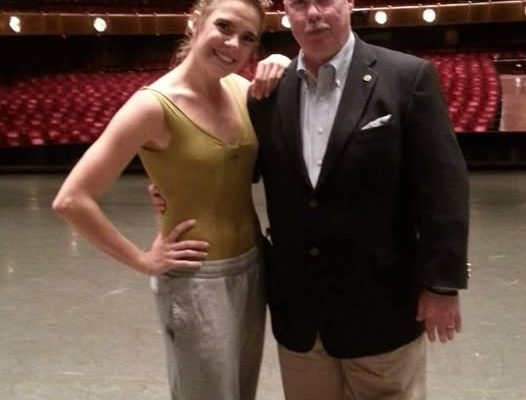“They will carry me out by my boots. I won’t retire. I like challenges, and I enjoy life. I want to engage with it and be engaged by it.” Those words, spoken by King Hill with a steady defiance and unwavering conviction, summarize not only his attitude toward work but his entire philosophy on living. It’s a mantra not born out of stubborn pride or fear of slowing down, but from a deeper place—a place of gratitude, curiosity, and relentless purpose. For Hill, life is not something to be survived, retired from, or passively observed. It’s something to wrestle with, to mold and be molded by, to struggle against and embrace all at once.
There’s a reason those who cross paths with King Hill remember him long after the conversation ends. He has a presence that doesn’t ask for attention but earns it. When he speaks, you get the sense that every sentence is rooted in a thousand lived experiences. Yet for all the titles he has held, for all the accolades and recognition he’s collected over a sprawling career, Hill insists the true foundation of his success—the very core of who he is—was built in Lubbock, Texas. At Texas Tech University, Hill didn’t just get an education. He began to understand who he was and who he could become. That campus, those people, that culture—they didn’t just shape his journey; they made it possible.
When Hill first stepped onto the Texas Tech campus, he wasn’t the man people know today. He was younger, more uncertain, and yet intuitively driven. The red brick buildings, the windy West Texas sky, the sense of possibility wrapped in every open expanse—all of it began to influence his worldview in ways he couldn’t quite articulate back then. But in time, those years would prove to be catalytic. The university wasn’t just a place to earn credits or a diploma; it was where his values were tested, deepened, and cemented.
One of the key features of Hill’s Texas Tech experience was relationships. Not just fleeting acquaintances or classroom interactions, but deep, durable connections that stood the test of time. Professors, mentors, teammates, and peers—each one played a pivotal role in sharpening Hill’s intellect, expanding his empathy, and solidifying his work ethic. One particular professor, known for being both brutally honest and endlessly supportive, took a special interest in Hill’s development. He challenged Hill to think beyond the textbook, to apply lessons in real time, and to never settle for mediocrity masked as effort. It wasn’t easy. In fact, it was often frustrating. But it was formative. That professor—whose words Hill can still quote to this day—taught him that discomfort was a necessary ingredient of growth.
Outside the classroom, Texas Tech was equally influential. Hill immersed himself in extracurricular activities that broadened his perspective and honed his leadership skills. He joined student organizations, participated in community initiatives, and pushed himself into unfamiliar territories. Whether it was organizing a campus event or debating ethics in a late-night dorm conversation, Hill was always searching for meaning and improvement. That hunger for progress didn’t disappear after graduation; it became a permanent fixture of his identity.
Sports, too, played a key role in shaping Hill. Though he was never the most naturally gifted athlete, he compensated with determination, strategic thinking, and an unshakable team-first mindset. Coaches took notice. They appreciated the player who didn’t just care about personal stats but about collective success. That mentality—the idea that individual excellence must be in service of something greater—would go on to define his approach to business, mentorship, and even family life.
Texas Tech also gave Hill a crucial education in failure. It’s a part of his story he’s never tried to hide or romanticize. There were setbacks—academic, social, and personal—that left him questioning himself. There were days when the weight of expectation nearly crushed him. But every failure carried a lesson, and each lesson became a tool. Over time, he learned that resilience wasn’t just about bouncing back; it was about bouncing forward. The challenges didn’t deter him. They refined him. They burned off the arrogance of youth and replaced it with humility and purpose.
As Hill’s career took off, he carried the spirit of Texas Tech with him into boardrooms, classrooms, and communities across the country. The principles he learned—integrity, perseverance, empathy, and vision—became the pillars of his leadership style. He built companies, advised young professionals, and led with a clarity that made people feel seen and heard. But no matter how far his influence reached, he never forgot his roots. He didn’t just speak about Texas Tech with reverence; he actively gave back, mentoring students, funding scholarships, and serving on advisory boards. To Hill, success wasn’t success if it didn’t loop back to uplift the places and people who helped him get started.
What’s most remarkable about King Hill, though, is not his résumé or reputation—it’s his refusal to slow down. At an age when many begin retreating from the world, Hill is charging further into it. He still wakes up early, still fills his days with purpose, and still seeks out challenges with the excitement of someone half his age. He sees retirement not as an eventual end but as a cultural invention he has no interest in adhering to. For him, stopping is not an option. As long as he has breath, he has something to give, something to learn, and something to build.
This approach to life, this refusal to fade into irrelevance, isn’t just admirable—it’s inspiring. It sends a message to everyone who might be wondering if their best days are behind them. Hill is living proof that life doesn’t end at a certain age or achievement level. It evolves. It deepens. And if you let it, it surprises you.
Even now, decades removed from his Texas Tech days, Hill admits he’s still learning things about himself that were seeded during that time. Moments he once considered minor now carry deep significance. A conversation on a campus bench, a failure on an exam, a compliment from a peer—all of it matters. He realizes now that college wasn’t just preparation for a career. It was the soil from which his entire philosophy grew.
Ask Hill what drives him, and he’ll tell you it’s a combination of legacy and curiosity. He wants to leave things better than he found them, yes—but he also wants to keep discovering new layers to himself and others. The world, in all its messiness and unpredictability, still fascinates him. He doesn’t just want to witness change; he wants to be part of it. He doesn’t just want to exist; he wants to matter.
That’s why, when he says, “They will carry me out by my boots,” it doesn’t sound dramatic. It sounds inevitable. Hill isn’t clinging to relevance; he’s expanding it. He isn’t resisting time; he’s collaborating with it. And he isn’t chasing legacy for ego’s sake, but for the deep satisfaction of knowing he gave everything he had, every single day.
His story is a powerful reminder that transformation isn’t a one-time event. It’s a lifelong process. Texas Tech was the launchpad, but Hill’s journey has been defined by his willingness to keep growing, to keep showing up, and to keep saying yes to life’s challenges. In an age where disengagement often masquerades as wisdom, Hill stands as a vibrant counterexample. He is proof that engagement—real, passionate, messy engagement—is what gives life its meaning.
There’s a photo of Hill from his college days, standing on the steps of a Texas Tech building, smiling like someone who doesn’t yet know the full magnitude of the life ahead of him. He had no idea then that he’d one day mentor hundreds, influence thousands, and inspire even more. He didn’t know how many storms he’d weather, how many dreams he’d realize, or how many people would look to him as a model. But that smile—that spark of possibility—was the beginning of it all.
Today, that spark hasn’t dimmed. If anything, it’s brighter. Because King Hill never stopped believing in the power of growth. He never stopped trusting in the transformative potential of education, effort, and experience. And he never stopped living the words he now repeats to anyone willing to listen: Life is not about avoiding the boots—it’s about wearing them proudly, walking boldly, and never settling for less than your full engagement with the world.



